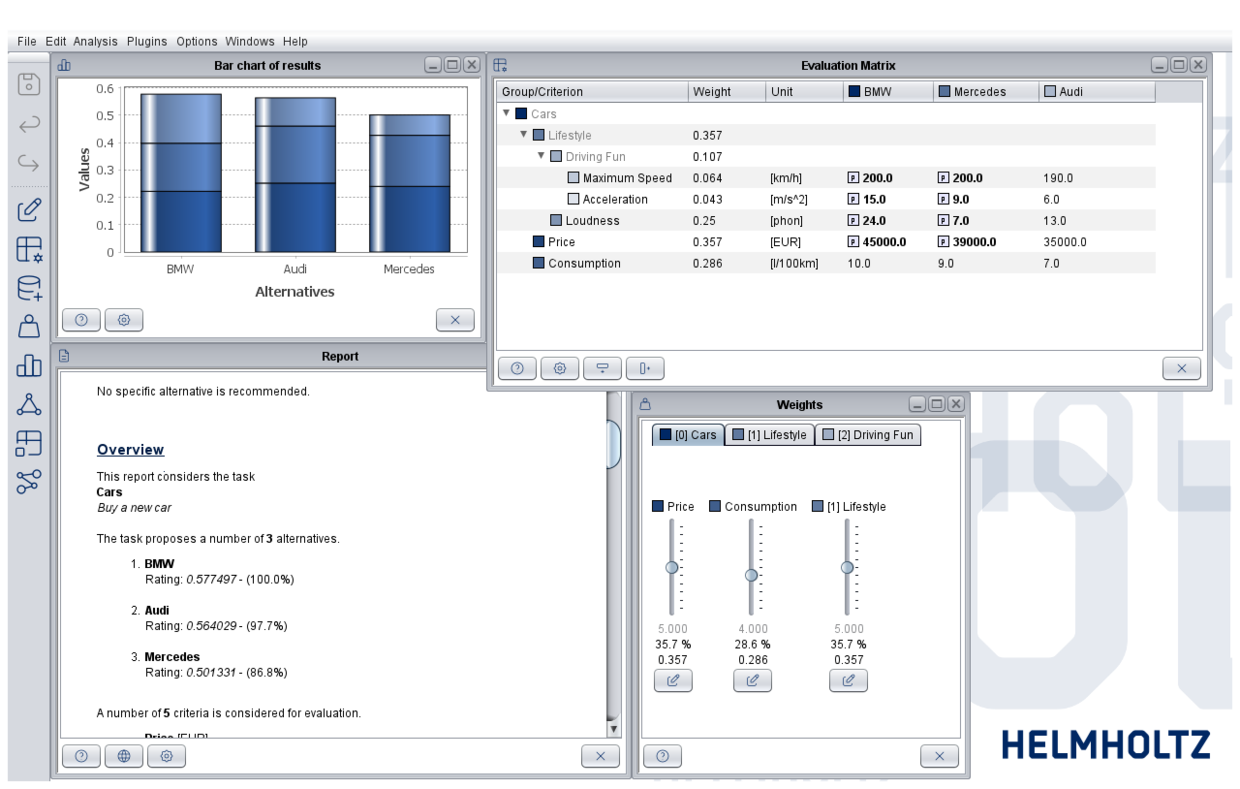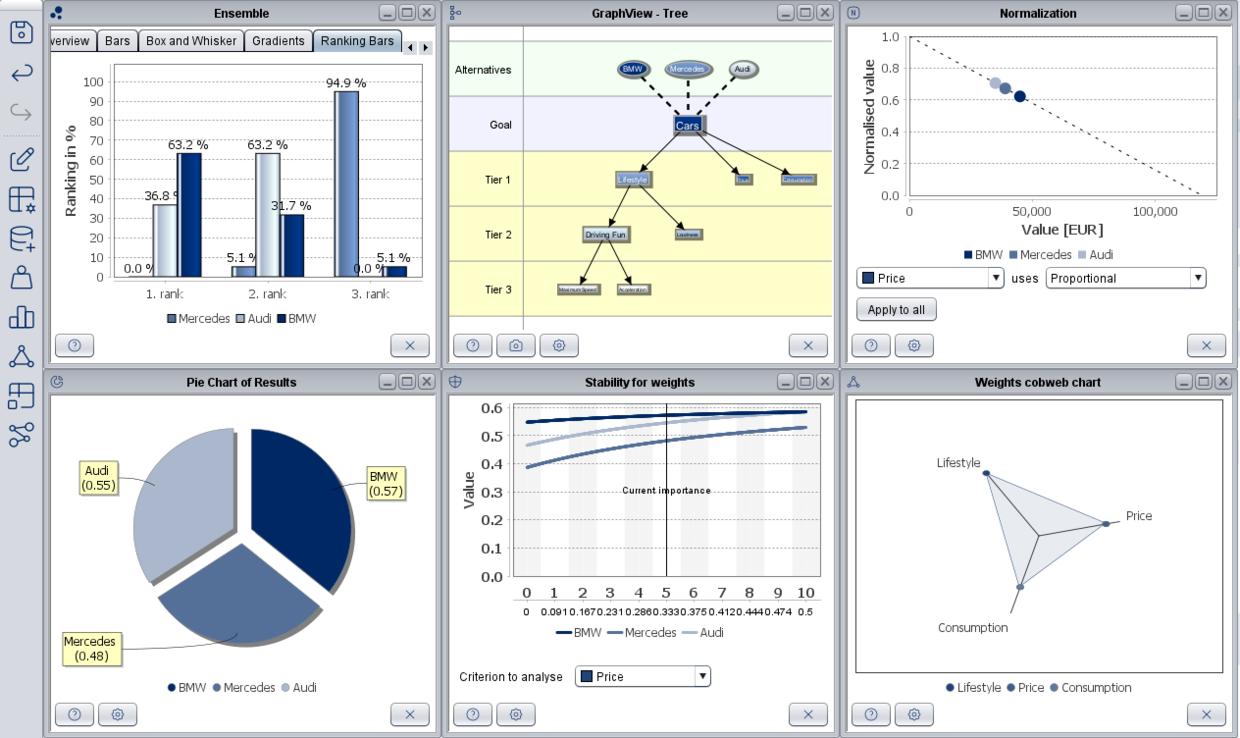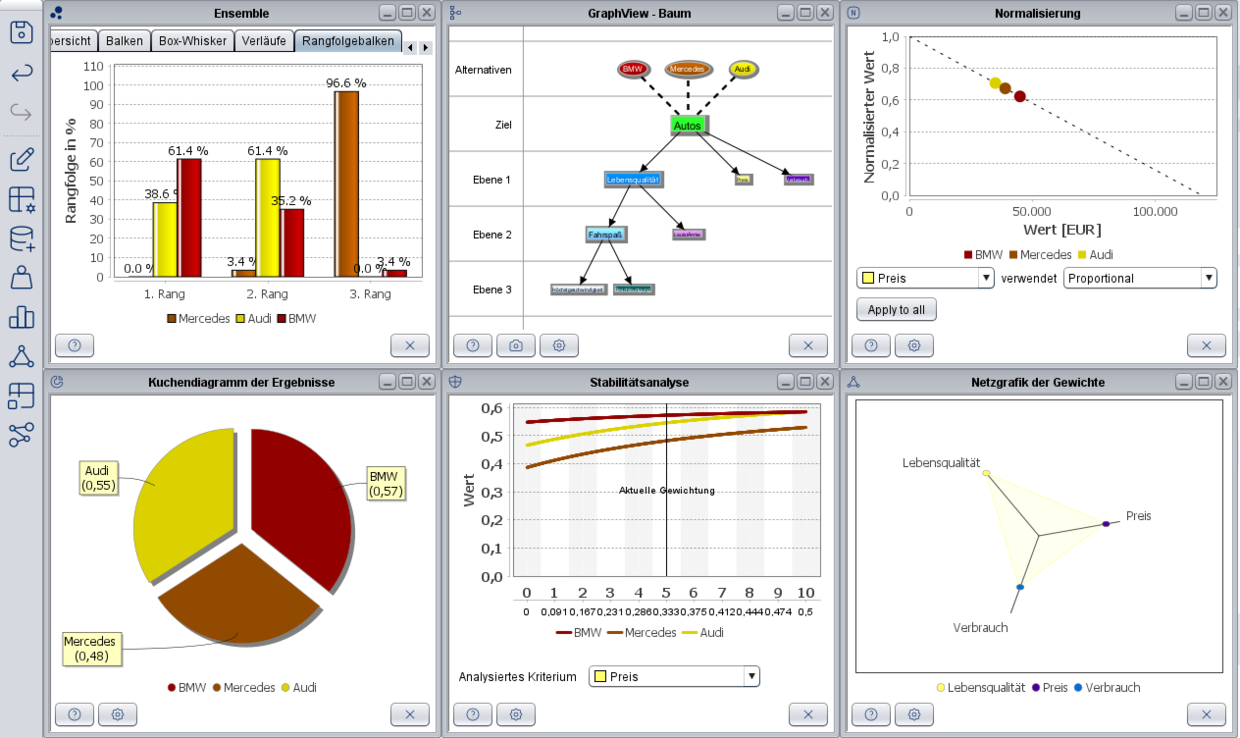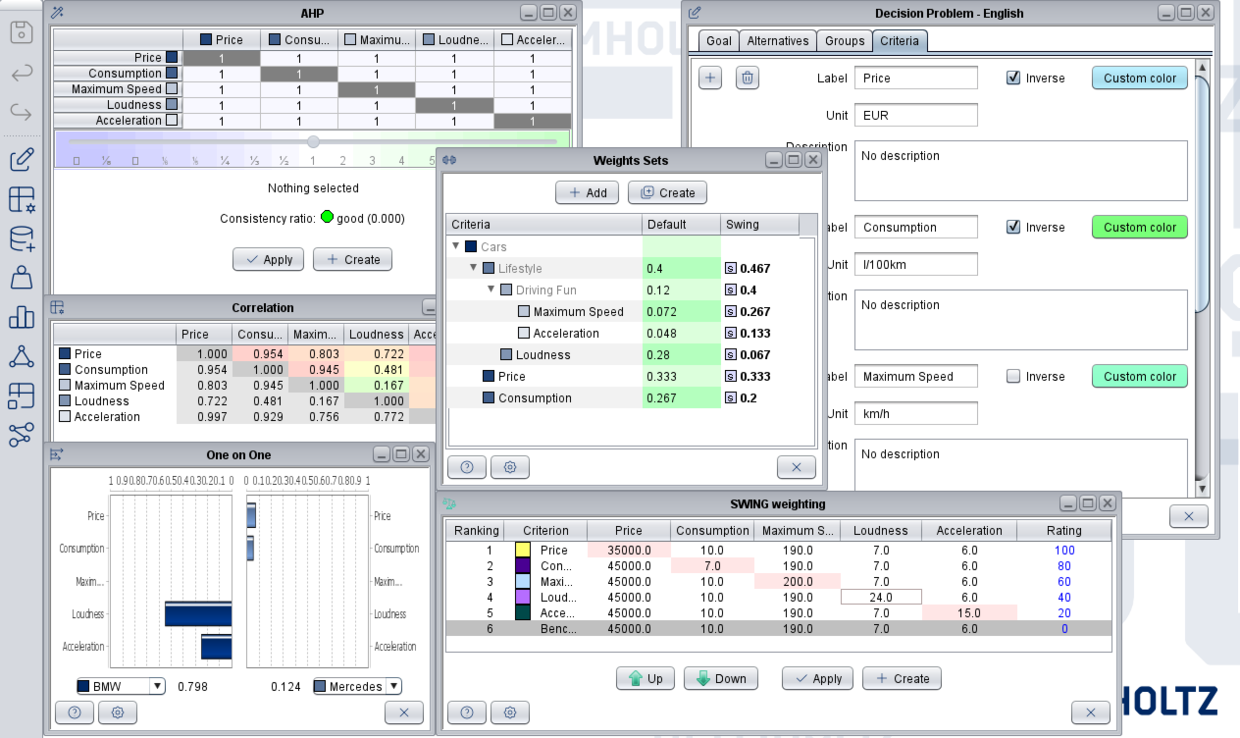Helmholtz MCDA Tool (HELDA)
The software supporting the sustainable energy transition
HELDA is a further development of MCDA Tool KIT which was originally created for nuclear emergency management at KIT-ITES. HELDA is the result of the ongoing collaboration of KIT-ITES and KIT-ITAS to provide an MCDA software to meet the demands for sustainabilty assessment. HELDA comes with a refreshed user interface, new logo, additional features and a plug-in for interactive stakeholders involvement. The features that differentiate HELDA from its original source are marked with an *.
MCDA methods available
HELDA includes the following aggregation methods:
- Weighted sum
- Weighted product
- Weighted rank
- TOPSIS
- VIKOR
- User defined expression
- PROMETHEE I and II*
- ELECTRE III*
And the following weighting methods:
- AHP
- SWING
- SMART
- Relative weights (sliding bar)
- Deck of cards method*
- Absolute weights (direct input)*
Dealing with uncertainty
HELDA can perform uncertainty analysis on input data (performances and weights) using:
- Probability distributions
- Monte Carlo simulation
You can also conduct sensitivity analysis on input data.
Graphical representation
HELDA allows visualization of the following:
- Weighting sets analysis for single or multiple stakeholder*
- Ranking of alternatives from best to worst (including uncertainty analysis)
- Sensitivity analysis on input data (stability graph)
- Values
- Weights
- Thresholds* will be released soon
- Alternatives* will be released soon
- Dominance graph
Stakeholders integration*
Plugin for online surveys* - Provided upon request for academic and teaching purposes. Please contact us via helda ∂does-not-exist.lists kit edu for further information.
Method selection*
Help feature for MCDA method selection based on MCDA-MSS* will be released soon
Download
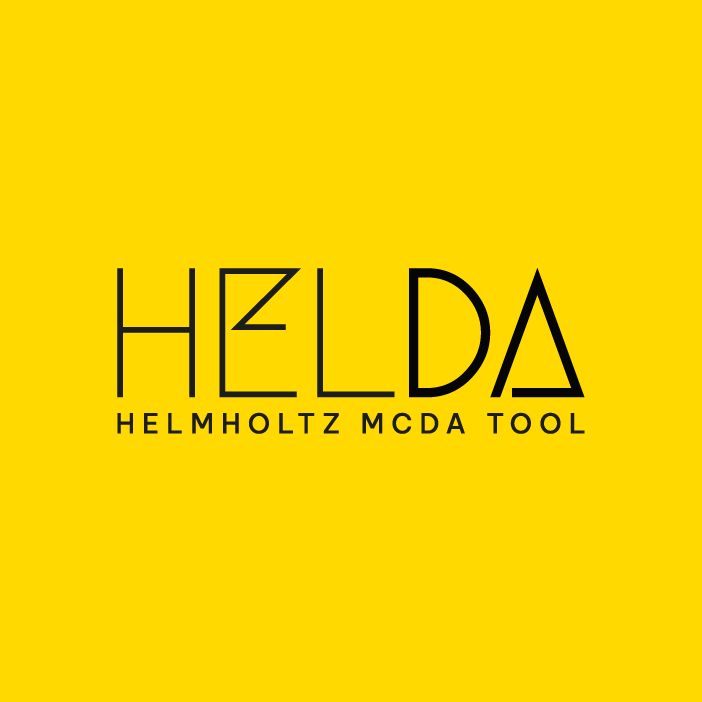
Version: 1.0 (based on MCDA Tool KIT 9.5)
Click here to receive the download links
User Manual: HELDA 1.0
Requirements: Java 17 or higher (e.g. from Azul)
Concept: Laura Mesa Estrada, Martina Haase, Tim Müller
Development: Tim Müller
Contact: helda ∂does-not-exist.lists kit edu
Citation: HELDA (Version 1.0). (2024) [Computer Software].https://www.mcda-helmholtz.de/
Disclaimer: We are not responsible for the accuracy or reliability of the calculation results. Users should verify the outcomes independently.


